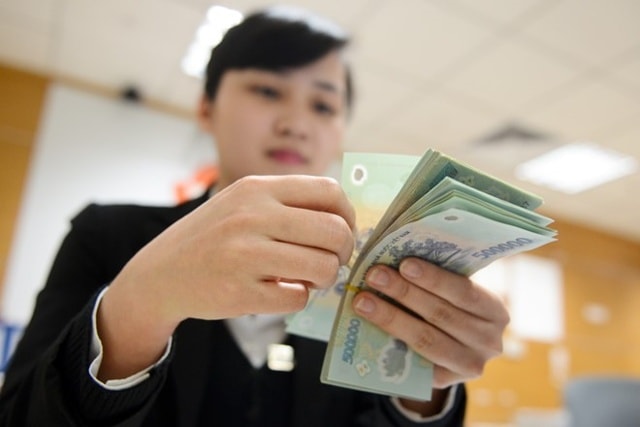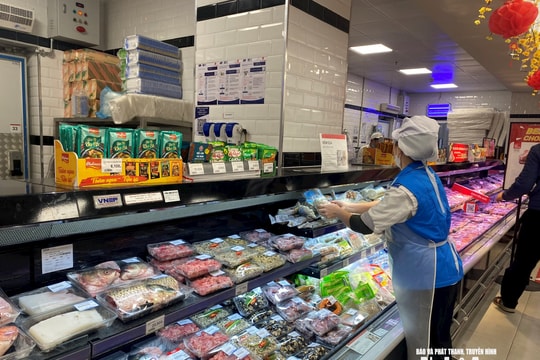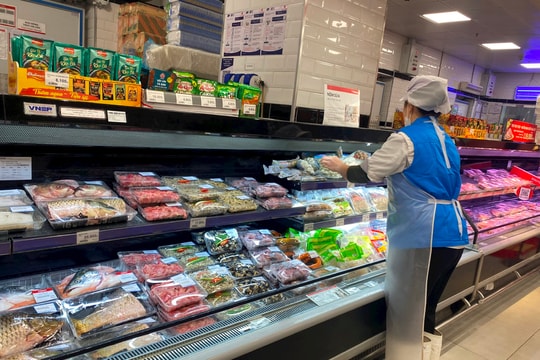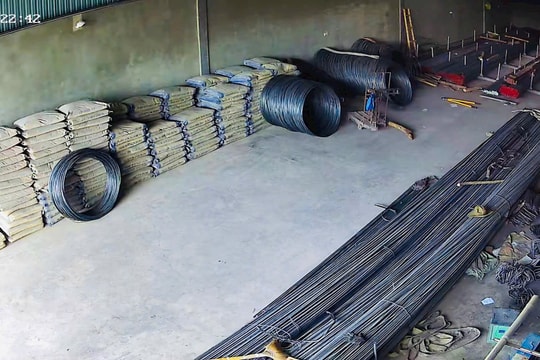Deputy Prime Minister Vuong Dinh Hue: Weak banks need to be tightly managed
Tightly managing weak banks and continuing to restructure credit institutions are two of the tasks set for the State Bank by Deputy Prime Minister Vuong Dinh Hue.
Working with the State Bank on the afternoon of April 22 regarding Resolution 01 of the Government, Deputy Prime Minister Vuong Dinh Hue said that the State Bank needs to closely follow the contents and solutions on monetary policy management stated in this Resolution.
Assessing the past 5 years, the Deputy Prime Minister said that the banking industry has proactively and actively coordinated with ministries, branches and localities to focus on synchronously and drastically implementing the proposed tasks and solutions, contributing to stabilizing the macro-economy.
 |
| Deputy Prime Minister Vuong Dinh Hue at a working session with the State Bank. |
This caused the consumer price growth rate to decrease sharply, from 18.12% in 2011 to 0.63% at the end of 2015. The lending interest rate level decreased by the end of 2015 (down 50% compared to the beginning of the term), credit balance increased along with gradually improved credit quality.
The foreign exchange market has also been basically stable. Confidence in the Vietnamese Dong has increased, overcoming the dollarization and gold-ization of the economy. The handling of bad debts and restructuring of weak joint-stock commercial banks have, according to assessments, achieved initial results.
The entire system has reduced 20 weak banks through mergers and acquisitions, contributing to the health of the system. Liquidity and safety of the system are ensured, providing better capital for the economy and contributing to macroeconomic stability.
However, the remaining problems noted by the Deputy Prime Minister include high bad debt, ineffective bad debt handling at VAMC. Some weak credit institutions have not been completely handled. Economic growth in the first months of the year is lower than planned, inflation risks are increasing due to the impact of world prices and the adjustment of prices managed by the State.
 |
| The banking system needs to continue restructuring in the 2016-2020 period. Illustrative photo |
In addition, the liquidity situation of credit institutions is more difficult in the context of rapid credit growth creating pressure to increase interest rates; medium and long-term credit tends to increase rapidly and higher than the general credit growth rate...
“The State Bank will continue to manage credit growth reasonably, in conjunction with improving credit quality and reducing bad debt, ensuring that it does not put pressure on interest rates and supports economic growth,” Mr. Vuong Dinh Hue stated. At the same time, he suggested that the State Bank focus credit on priority production and business sectors, closely monitor real estate credit, and direct credit to the social housing segment.
The project to restructure the system of credit institutions in the period of 2016-2020, associated with the handling of bad debts in a practical and effective manner and placed in the implementation of the overall project to restructure the economy, also needs to be implemented. Weak credit institutions need to be strictly managed. The State Bank continues to encourage and facilitate credit institutions to merge, consolidate, and voluntarily acquire, and to completely handle weak credit institutions and the issue of cross-ownership.
According to zing








